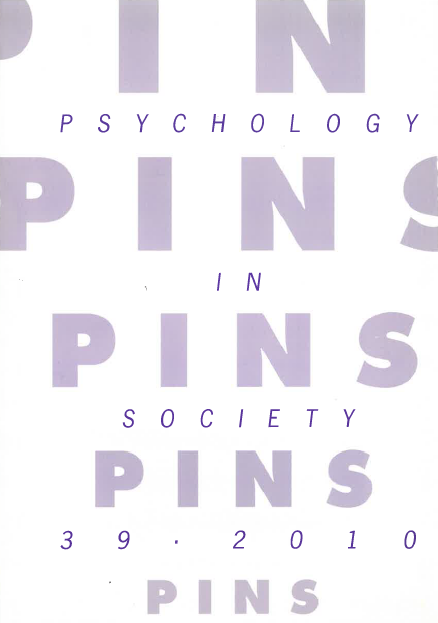TRANSLOCATIONS OF PSYCHOANALYSIS (Review article)
DOI:
https://doi.org/10.17159//2309-8708/2010/n39a5Abstract
INITIAL RESPONSES TO THE BOOK. In the introduction to his book, Japan in analysis (2008), Ian Parker relates an experience he had at a barbershop at informing the barber that he will be writing a book on Japan and psychoanalysis. For the barber, the idea that anyone would want to write about Japan and psychoanalysis is so inconceivable that he is thrown into uncontrollable laughter at hearing this. In what is likely to have been a derisive attempt to picture what the book might be about, he in fact, manages to capture the essence of its structure, as Parker says. This would be the one level at which the barber’s astonishment that someone could be planning to write a book about Japan could be read. A different and somewhat deeper meaning emerges when one links this inquiry with the one appearing later on in the book, of a participant asking, “why are you asking these questions”. Part of what this book seems to raise is a question as to what it is about Japan that warrants writing a book on psychoanalysis. I would suggest that an even more complex question is engendered in these enquiries, about power relations resident in positions of object and subject.
Downloads
Downloads
Published
How to Cite
Issue
Section
License
This journal is an open access journal, and the authors' and journal should be properly acknowledged, when works are cited.
Authors may use the publishers version for teaching purposes, in books, theses, dissertations, conferences and conference papers.
A copy of the authors’ publishers version may also be hosted on the following websites:
- Non-commercial personal homepage or blog.
- Institutional webpage.
- Authors Institutional Repository.
The following notice should accompany such a posting on the website: “This is an electronic version of an article published in PINS, Volume XXX, number XXX, pages XXX–XXX”, DOI. Authors should also supply a hyperlink to the original paper or indicate where the original paper (http://www.journals.ac.za/index.php/pins) may be found.
Authors publishers version, affiliated with the Stellenbosch University will be automatically deposited in the University’s’ Institutional Repository SUNScholar.
Articles as a whole, may not be re-published with another journal.
The copyright of the article(s) lies with the author(s).
The copyright of the journal lies with PINS-psychology in Society.
The following license applies:
Attribution CC BY-NC-ND 4.0 - https://creativecommons.org/licenses/by-nc-nd/4.0/

